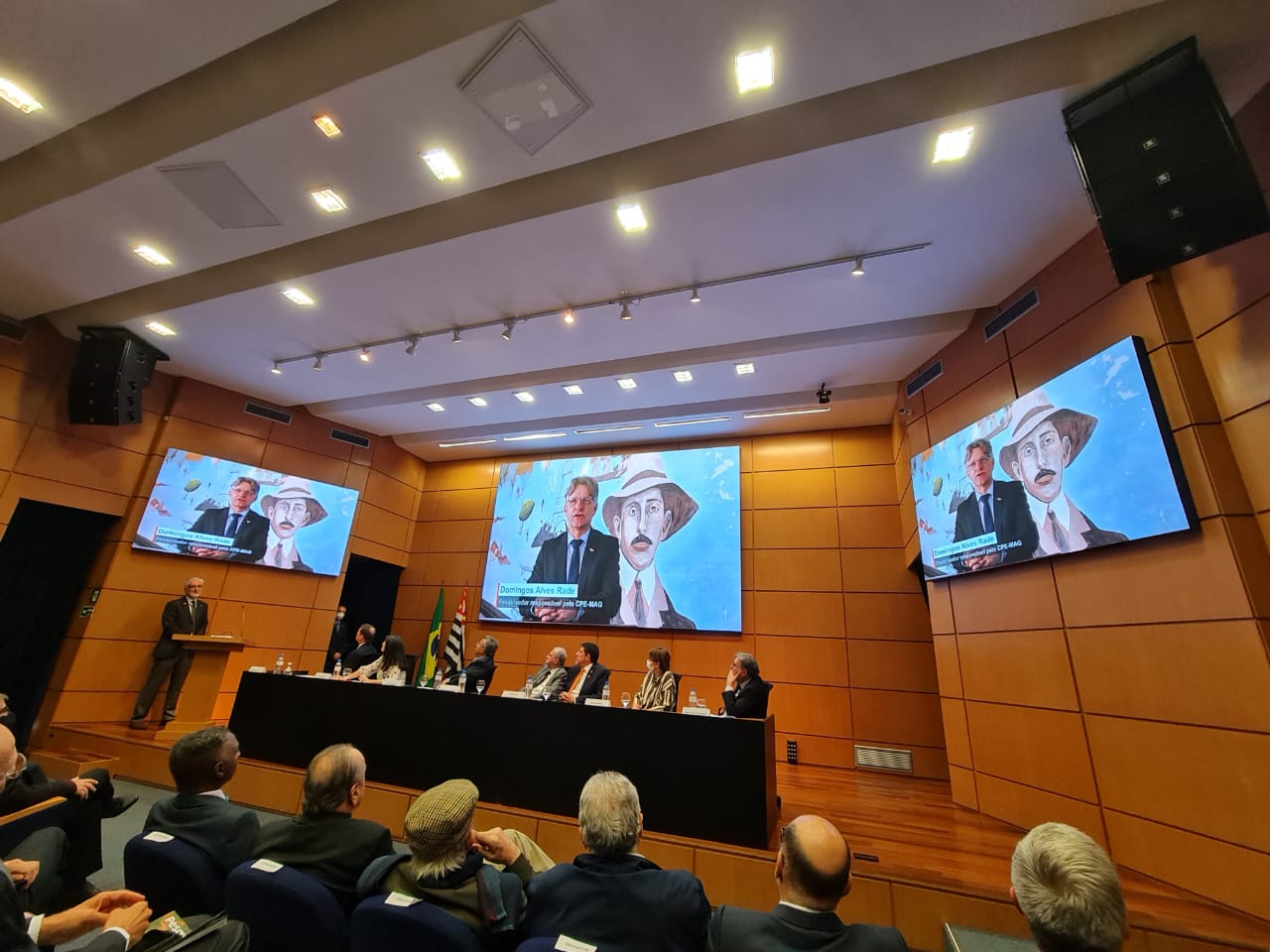Instituto Tecnológico de Aeronáutica (ITA) will develop high-level research in partnership with EMBRAER
Air Force Agency – Captain Fabio Cox And Major Oliveira Lima
The Fundação de Amparo à Pesquisa do Estado de São Paulo (São Paulo State Research Support Foundation – FAPESP) announced, during the ceremony celebrating the 60th anniversary of its creation, a shared investment with the Brazilian Aeronautical Company (EMBRAER), amounting to R$ 48 million for research in air mobility to be carried out at the Instituto Tecnológico de Aeronáutica (Aeronautical Technological Institute – ITA), located in São José dos Campos (SP).
Participating in the event were directors and researchers from the São Paulo academic community, government representatives and businessmen with activities related to development, technology and innovation.
With a five-year timeline, with the possibility of renewal for another five years, the resources will be invested in an Engineering Research Center (CPE) for future air mobility, to be created in the Institute. The projects will involve the training of high-level human resources in subjects of interest to the defense industrial base and the Brazilian aerospace sector.

According to FAPESP President Marco Antonio Zago, this work will be carried out jointly by professors from ITA, the State University of Campinas (UNICAMP) and the São Carlos School of Engineering, and engineers from EMBRAER, with outstanding performance by fellows at various levels, from scientific initiation to post-doctoral studies, who will be provided with adequate infrastructure, administrative support and governance mechanisms.
“FAPESP’s partnership with EMBRAER and ITA will certainly be fruitful and offer answers to one of the great challenges to be faced by research in the coming years: the transition to a low carbon economy associated with advanced manufacturing,” he said.
The unprecedented research in Brazil will bring together representatives from the scientific community and professionals from the aeronautical industry in activities based on three pillars: low carbon aviation, autonomous systems and advanced manufacturing. The initiative creates a favorable environment for the dissemination of knowledge, the training of highly qualified human resources and the production of high-impact scientific publications.
Embraer’s Vice-President of Engineering, Technological Development and Corporate Strategy, Luís Carlos Affonso, celebrated the Center’s approval. “We are very excited with the approval of the Engineering Research Center focused on the air mobility of the future, in partnership with ITA and FAPESP. I am sure it will be an excellent example of cooperation between business, government and academia with the purpose of contributing to the definition of the zero-carbon aviation of the future, generating value for society as a whole,” he said.

According to the Dean of ITA, Professor Anderson Correia, over the last few months, the institutions have described together the scope of the research and the main activities to achieve the partnership that proposes innovative technological solutions that will enhance the competitiveness of the global innovation ecosystem. “ITA was formed in the triple helix model, at the intersection of academia, government and industry. This initiative is another icon of this model, which will expand the training of human resources in strategic areas for EMBRAER, the Air Force and the sector’s productive chain. It will also promote international integration to meet the challenges of future air mobility,” he said.
Activities such as the one proposed by the CPE guide and enable the technology transfer conditions between the industrial, public and third sectors, strengthening links and innovations through partnership models and intellectual property management, new business generation, incubation and stimulus to entrepreneurial activity for the application of research results.
The Researcher and Director responsible for the CPE, Professor Doctor Domingos Alves Rade, from ITA’s Mechanical Engineering Division, communicated that the general objective is the development of high level research work, dedicated to innovative themes, whose investigation is necessary for formatting the aviation of the future, such as electric propulsion, advanced manufacturing and autonomous systems. “The Center will also have a strong performance in terms of Technology Transfer to existing and future companies, and also in terms of education and dissemination of knowledge to society,” he emphasized.

Photos: ITA
*** Translated DEFCONPress Team ***
